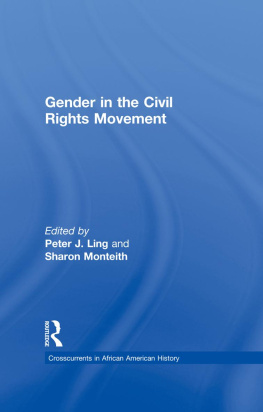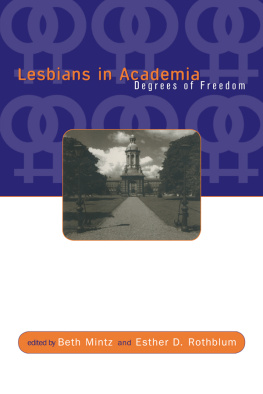GARLAND STUDIES IN
AMERICAN POPULAR HISTORY AND CULTURE
edited by
JEROME NADELHAFT
UNIVERSITY OF MAINE
Hollywoods Vision of Team Sports
Heroes, Race, and Gender
Deborah V. Tudor
First published 1997 by Garland Publishing, Inc.
This edition published 2014 by Routledge
711 Third Avenue, New York, NY 10017
2 Park Square, Milton Park, Abingdon, Oxon OX14 4RN
Routledge is an imprint of the Taylor & Francis Group, an informa business
Copyright 1997 Deborah V. Tudor
All rights reserved
Library of Congress Cataloging-in-Publication Data
Tudor, Deborah V., 1951
Hollywoods vision of team sports: heroes, race, and gender
/ Deborah V. Tudor.
p. cm. (Garland studies in American popular history and culture)
Filmography: p.
Includes bibliographical references and index.
ISBN 0-8153-2907-5 (alk. paper)
1. Sports filmsHistory and criticism. 2. Afro-Americans in
motion pictures. 3. Women in motion pictures. I. Title.
II. Series.
PN1995.9.S67T84 1997
791.43655dc21
97-10597
In the nineteen-eighties, when I began gathering materials for this book, the need for analyzing race and gender in the public presentation and reception of athletics became obvious. This book addresses ways that traditional elements of sports, the hero, the celebrity, and the star interact with the already-formed cultural discourses of race and gender.
That decade also saw the beginning of sports careers and trends that now occupy the public mind. Michael Jordan, through his presence on the basketball court, in advertisements and films, has gone from star to blockbuster in the sports world. Contemporary strategies of representing him and other athletes to the public have their origins in the years covered in this book. Similarly the images of Jim McMahon and Ryne Sandberg, who are not as well-known as Jordan, provide useful case studies for understanding the heterogeneity of the athletic hero and star and how this concept fractures and coalesces across the borders of particular sports. An examination of these issues in this historical period contributes to our understanding of contemporary place of sports in Western culture.
Sports as discourse constantly shifts its ground as foundational terms are redefined. This study traces some of the history of the media circulation of discursive elements of sports.
I would like to acknowledge the many people who helped me with the research and writing of this dissertation. All the members of my dissertation committee at Northwestern UniversityChuck Kleinhans, Jim Schwoch and Rick Maxwellhave my deepest gratitude. Chuck Kleinhans, who worked with me the longest, gave incomparable help, sympathy and encouragement that helped me complete the project.
My companions from the University, my "dissertation sisters and brother" also deserve many thanks for thoughtful criticism, sincere fellowship, support and good food. So thank you very much, Ramona Curry, Kate Kane, Jinny Keller, Chris List, Toni Perrine and Craig Kois.
Kristi Long of Garland Publishing and Sue Griffin of Best Price Word Processing receive my thanks for their patient help in getting this manuscript into shape.
I want to thank my husband Jim for his support during the years I completed graduate school. I could not have done this without your unqualified, loving support.
I write this book to address a lack of analysis of the representation of sports in North American film and television. I first became interested in the representation of athletes when I noticed the public debate that occurred over the Cubs' second baseman Ryne Sandberg's new mustache. The apparently trivial act received great attention from the public and the media played up this response, to the point of The Chicago Sun-Times running a reader poll on whether or not Sandberg should keep the mustache. The vigor of this public argument indicated important ground to investigate concerning the nature of the athletic hero and the representation of this construct.
Furthermore, sports films, considered box-office poison for years and generally derided by film critics as boring simulations of "the real thing" experienced a comeback in the nineteen-eighties. The reemergence of the sports film also prompted me to investigate its representations of athletes as heroes.
Along with the preeminence of these films, athletes became bona fide celebrities within the last decade, taking their place in magazines like People and Us along with film stars, musicians, members of various royal families and television personalities. Not only were these athletes being reported upon for the quality of their performances, their off-court activities were chronicled as well.
One intriguing element about the emergence of the athlete as star, hero and celebrity is the range of acceptable types of athletes who qualify for this attention. The idea of athletic hero is not a monolithic one but covers a number of possibilities. Examining this phenomenon both in films and broadcasting provides a way to investigate the ideology of athletics.
Both fictional and non-fictional discourses foreground the construction of the hero. Older texts, such as films from the nineteen-forties and nineteen-fifties display on the surface a straightforward, idealized hero figure. Their heroic surfaces conceal great contradictions in the fields of race, gender and the business of sports. Contemporary films present a much more complex notion of the hero, dealing with current discourses of race and gender. The intersection of the traditional Western cultural hero with those discourses generates much trouble in the text. Trying to fit the "heroic mold" onto race and gender-sensitive texts displays the contradictions and ambiguities at work. By addressing a wide range of films and non-fictional images such as advertisements and broadcasts, I begin an analysis of the ideology of sports.
The question of defining "sports" rests upon a foundation of the notions of competition and regulation. Rules divide activities we define as sports from those we call play. A simple definition of sport is given by William Baker, who calls it "competitive play"(10). John MacAloon offers a more complex formulation for sport, or "games" as "formal structures (that) involve fixed and public rules, predetermined roles, defined goals and built-in criteria for evaluating the quality of the performance" (254). William J. Morgan, attempting to critique and reformulate Leftist theories of sport, identifies the commonalities of "sporting practices": "they are all contrived pursuits that seek to overcome unnecessary obstacles" (211). The latter definitions perceive sports as forms that define how an end shall be achieved. Morgan's "unnecessary obstacles" refer to rules that govern, for example, whether or not a ball hit over a fence is a home run or simply a foul ball. Rules constrict play, define performance's effectivity and enforce regularity on team. Individuals on a team define themselves differently from a group of people playing together; teams presuppose roles. Athletic programs differ from play; they are hierarchical. Participants follow rules and obey coaches:
Play is an activity that human beings create in which the person sees himself or herself in the object produced. It presupposes equality... we play neither with inferiors or superiors; we play with our equals (Aronowitz 62).








